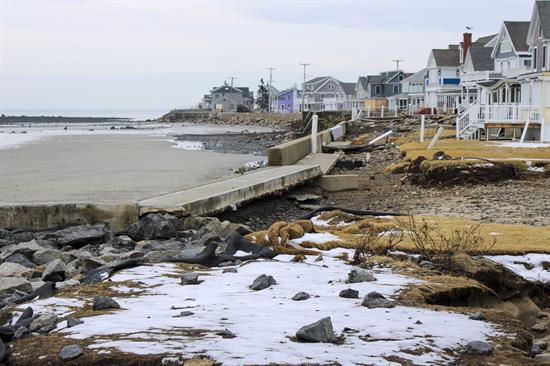Press Releases
Pingree, Murphy Introduce Bipartisan Legislation to Protect Coastal Homeowners
Washington,
June 5, 2024
Today, Congresswoman Chellie Pingree (D-Maine) and Congressman Greg Murphy, M.D. (R-N.C.) introduced the Prevent Environmental Hazards Act to give homeowners insured by the National Flood Insurance Program greater flexibility to manage natural disasters. “Coastal communities in Maine know all too well how devastating the impacts of the climate crisis can be. Over the last year, Maine has been hit with multiple major storms and climate emergencies are continuing to increase across the country,” said Pingree. “Our Prevent Environmental Hazards Act gives homeowners the ability to tackle coastal erosion before losing their homes by authorizing the National Flood Insurance Program to give payouts for condemned structures and allowing advanced demolition or relocation funding. Giving our coastal communities more funding options is crucial to mitigating future climate change impacts and I am happy to be a part of this bipartisan effort.” “Homeowners should not be forced to wait for their home to cause an environmental hazard before the National Flood Insurance Program is implemented,” said Murphy. “As many in our coastal communities understand, ocean currents and weather systems are unpredictable. As an example, beach erosion in Rodanthe, NC destroyed six properties in the last four years, causing massive environmental and personal hazards before the homeowners were able to receive National Flood Insurance compensation. Proactive planning will better serve eligible beneficiaries, improve public safety, save taxpayer dollars, and protect the surrounding environment. This effort gives homeowners more options to protect their livelihoods and expands forward-thinking approaches to the many coastal challenges we face. Additionally, it prevents environmental hazards along our pristine coastlines before they occur.” The bipartisan legislation:
Background A growing number of buildings, initially compliant with state and local regulations, face imminent collapse due to property erosion. Property owners often wait for a collapse during a flood to claim through the National Flood Insurance Program (NFIP), which doesn't cover long-term erosion or advance collapse payments. This delay causes public health, safety, and environmental issues from debris and pollutants, leading to hazardous cleanups. Shoreline erosion damages are excluded from standard homeowners’ insurance, and NFIP only covers flood damages, leaving ambiguity in claims if a collapse occurs post-flood. Existing mitigation programs to address threatened homes are slow and inaccessible to homeowners. Pingree, who is the Ranking Member and former Chair of the House Appropriations Interior and Environment Subcommittee, is well-known in Congress for her leadership on fighting climate change. She’s the author of the bipartisan Keep America’s Waterfronts Working Act to support coastal communities grappling with the climate crisis and preserve the character of coastal communities by protecting jobs, commercial activities, and public access to America’s coast. ### |

